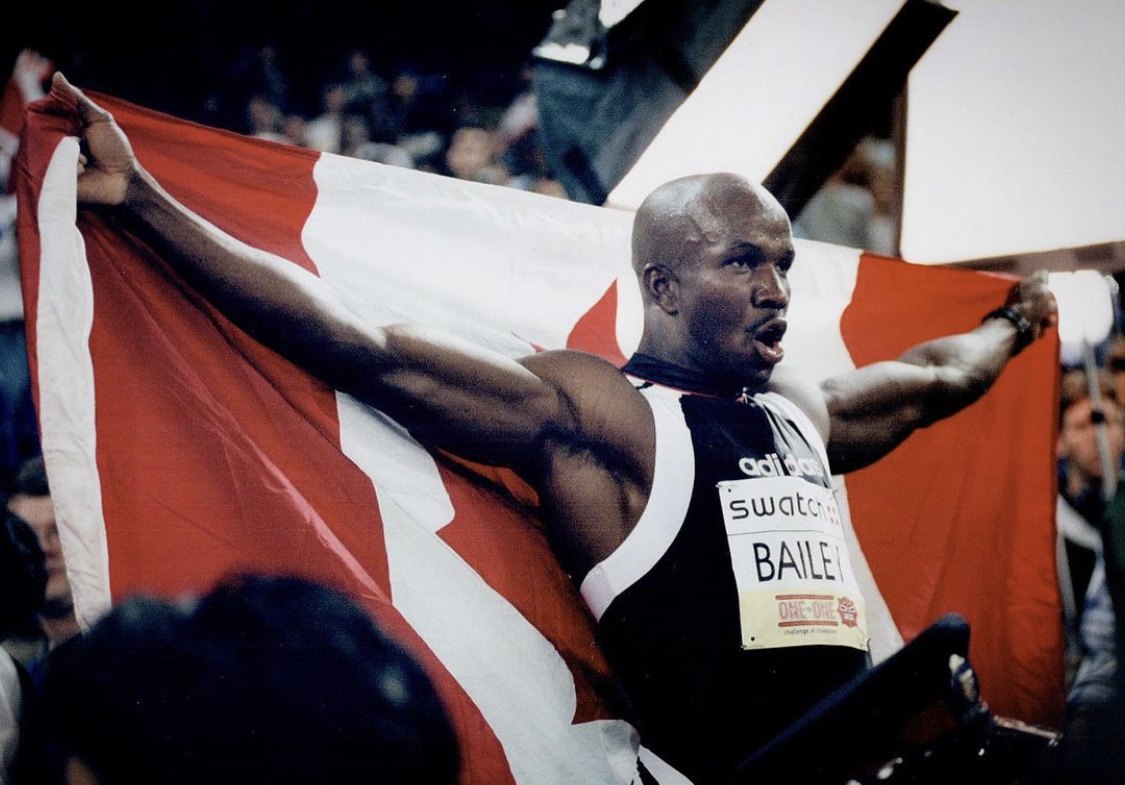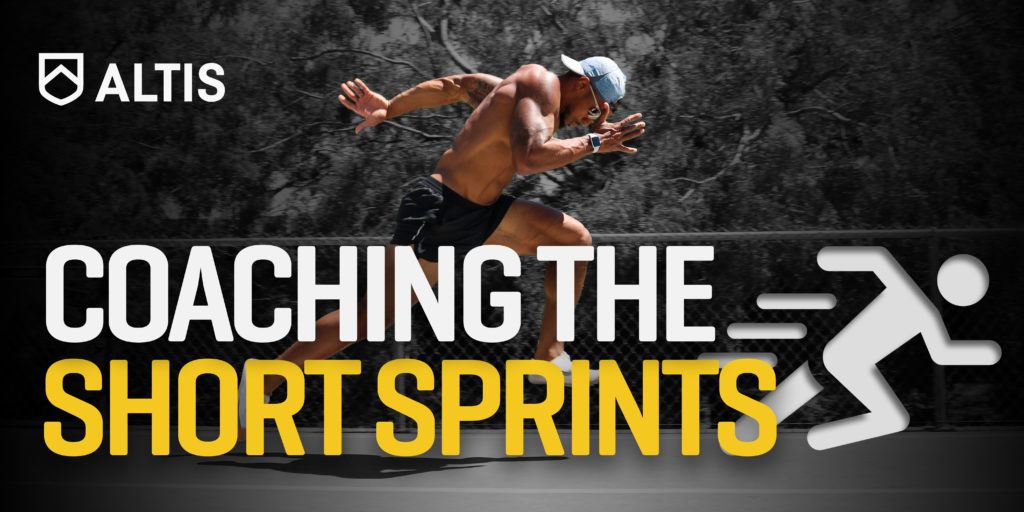Dive into the vibrant heart of Jamaican sprinting with an insightful article that takes you behind the scenes of one of the world’s most dominant sprinting powerhouses. Written by Coach Stu McMillan during a memorable stay in Jamaica alongside Olympic Champion – Donovan Bailey, this piece explores the unique blend of culture, training, and competitive spirit that propels Jamaican athletes to the forefront of global track and field. Whether you’re a track enthusiast or curious about the making of athletic champions, this article promises to deliver engaging stories, expert insights, and a deeper understanding of what it takes to excel on the world stage.
Back in 2013, I wrote the following post while I was staying in Jamaica with my buddy Donovan Bailey.
Aside from doing a lot of nothing, I spent a ton of time at tracks, talking to coaches, watching young athletes train, talking to former athletes, and trying to further understand what exactly it is about this tiny island that enables it to produce such outstanding sprinters. I had been to Jamaica before – many times. In fact, this was my 15th trip. But this was the first time I had been there since Jamaica began to dominate the world sprint scene.
It was also my first trip to what many call the greatest track meet on the planet: Champs.
For over two decades, Donovan and I had discussed high performance sport, success, sprinting, coaching, etc. And over those four weeks in 2013, those discussions intensified – as both of us were enjoying a little down-time. And – after a long trip back over the hills to Montego Bay from Kingston, we joked that we should tape some of those chats.
So I did.
We rehashed some of these same conversations – discussing Donovan’s career, Jamaican dominance, track in the UK, and the current state of affairs in Canada.
But we will start with Jamaican Sprinting.
I hope you enjoy:
SM: With CHAMPS recently celebrating their 100th anniversary, why is it that we have only seen sustained international success over the last 6 or 7 years?
DB: I think that today, there’s a different swagger – a different sense of accomplishment – a difference sense of belonging – a different sense of dominance…
Both Linford and I learnt at an early age – being born in Jamaica, and moving to first-world countries – that the culture of Jamaica – the infrastructure that was here at the time – and still is – instilled in us the attitude that we would be the very best we could be. We were exposed to the very best right from day one. It was expected of us. Linford dominated because that was his attitude. Because of his upbringing, he understood that he could show up and dominate. I grew up in the exact same way. Competing at Champs gives you the confidence that when you compete on the big stage, you are not scared. From the time you are 12, 13 years old, you are competing in front of 50,000 people inside a pressure cooker. World Championships and Olympic Finals are just extensions of that. At 13, 14, 15, 16 years old you have to deliver for your school. It’s huge pressure…
Sitting out there last week, that’s what I was thinking … these kids must be feeling comparable pressure as to what you felt back in ’96 in Atlanta: 30-40,000 people going crazy, and they’re just kids
…yes – absolutely – probably more so!
So do you feel, then, that if you had moved to Canada when you were 5 – instead of 12, and had your early competitive track and field experiences in Canada – and not Jamaica – do you think you would have enjoyed the same success later on?
I think psychologically I still would have been pretty strong. My parents taught me to be a very strong person mentally. Whatever I pursued, I had to give it my all – whether it was in the classroom, or basketball, or whatever. However, the kids now – just because of the pressure they are subject to – and the immense depth that now exists in Jamaica means they’re taking it to another level. We’re just seeing the beginning. But to answer the question, I personally feel that in my situation, I would have excelled in either country because of the values that my parents instilled in me. The present culture in Jamaica obviously makes it easier for everyone today though.
These kids are also technically sound – they’re being taught the right things. Coaching has gotten better in Jamaica. I know for a fact that some of the people in Jamaica that have not got enough credit are those that went over the the States in the 80s, 90s, and early 2000s on scholarships who were incredible athletes who have now returned to coach and to teach. And these guys don’t get enough credit.
The grassroots training in Jamaica is the very best in the world. The very best. No other country is even close. The sport matters here. From children of 4, 5, 6 years old – training for track and field matters. It’s like hockey in Canada, or basketball or football in the US.
If you took Champs away. Took the Regionals away. Took away Gibson Relays. And it just became a participation sport … even though the sport is still huge – it is still loved – say the way the sport is loved in the UK – without that focus of competition to strive towards, do you think we would see the kind of athletes we saw last week?
No – not at all. One of the things we are taught now in first-world countries is that it’s all about participation. It’s different here. Intense competition provides an expectation. Absolutely absurd expectation! Jhevaughn Matherson, Kimone Shaw – these are kids that are 12 and 13 years old, and they’re doing things now that would make most national teams in the world!
Talk about swagger!
… we watched these guys finish their races, and the cameras are jammed up into their faces, and it’s natural for them. Like they’re used to it …
These are grown people!
… exactly, they are getting into their starting blocks as kids and coming out as adults…dealing with adult-like pressures…and they’re delivering – pointing to the stands when they’re done, acknowledging their audience! You cannot replicate this – anywhere. You just can’t…
These guys now are just doing the same things as Usain was doing a decade ago … it’s nothing new.
You think some of the things we are seeing now – 30 records were set last week – is a lot of that due to Usain?
I think because Jamaica is a huge track country, I wouldn’t attribute it all to Bolt. It was started in the late 60s with Donald Quarrie. Continued through the 80s with Merlene Ottey.
And then Linford came along – a proud Jamaican-born Brit who competed for England – and then I came through, winning and setting a World Record in 1996, and most definitely Asafa must be given some credit. But yes – a majority of this has to do with Usain, and his popularity. He stayed home, and achieved tremendous success under his coach Glenn Mills…
So essentially, Bolt was the tipping point…it wasn’t really until he came through – starting doing some truly freaky stuff, when we began seeing some of the performances like we saw last week.
…yeh – sort of. From a home-grown talent perspective, Asafa was out there doing damage – dominating. It is just that he never got that big title.
We have spoken of that before…you said that maybe one of the reasons that Asafa has had his troubles in major finals was because he never really had the Champs experience (he competed twice for Charlemont High School. In 2000, he was knocked out in the heats of both the Class One 100m and the 200m, while in 2001, he finished 7th in the 100m). He never really experienced the pressures that these other kids have…
Yes – exactly. you learn very young that there is pressure. Asafa never went through it, and now on the big stage, he gets scared…while with Bolt now, it’s just another day.
One of the reasons why a lot of the American sprinters all seem to show up at big meets is because they’re used to being challenged. They’re used to the pressures of competition. They have had to compete their entire lives. From kids right up to college, where they compete almost every weekend…they learn to COMPETE.
Absolutely. But unfortunately for them, they’re competing against an island where track and field is the national sport. This adds an additional level of intensity. So they’re not afraid. When I started to compete, my own teammates were scared of American sprinters. American sprinters walked in with swagger, saying ‘listen – we’re going to kick your ass’…but I was never going to take a backseat to that. I had a great coach and a great team around me, so whenever I went into competition, I knew I was ready to compete – and to beat – the very best in the world.
And that’s what Jamaica has now – that SWAGGER. Saying “listen – I have trained. I am ready. I have a good coach, and I don’t care who is here. I’m going to do my thing”.
The greatest thing about the kids competing now is that swagger. I had that, and some of it rubbed off on other members of the relay team. Individually, they knew that they were never going to be the best in the world, but they knew that with Bruny and I on there, we could beat anyone. The confidence is contagious …
That’s what Jamaica has now – they’re not even concerned who they are competing against….they couldn’t care less! I love that!
So what can other countries learn from Jamaica, then? What can the UK do? What can Canada do?
From an athlete’s perspective, the very first thing that you need to have is a winning attitude. You need to be 100% confident in your coach, in your program, in your training, in your training partners.
You also need leadership from the top. You need coaches who have had success, and know how to develop it. I am talking about legitimate, international success. You need Olympic champions, world champions, world record holders, involved in the programs – people who have done it, and understand the unique determinants of success. In sport, you can give a man a shot, but when we have qualified people it should be a very easy call. The UK has had a great deal of successful ex-champions, who they have involved in the sport over the years.
Canada is a different story. Canada is not involving their ex-champions at all. I don‘t care what sport it is, whether it is hockey, basketball, skiing, what have you – ex-champion athletes are the ones you reach out to first, have them sit on the board, ask them advice, and that has just not happened.

“From an athlete’s perspective, the very first thing that you need to have is a winning attitude. you need to be 100% confident in your Coach, in your Program, in your training, and your training partners.” – Donovan Bailey
In Jamaica, every single person that has ever done something significant for this island internationally is still involved. Merlene Ottey is involved. Juliet Cuthbert is involved. Michael Greene is involved. Donald Quarrie is involved. We go to Champs, and Asafa is there. Yohan is there. Juliet Cuthbert, Juliet Campbell, Shelley-Ann Fraser are all there … and it could be at any level – whether it is in media, coaching, administrative. Whatever it is – a basic model, where everyone is part of the team. That’s what I want to happen.
Have you ever been asked to be involved in the Canadian set-up?
No.
Why’s that?
I don’t know. It’s something that I want to do. It’s something I have coveted. My attitude towards the Canadian program is this: I am about pure success. That’s all I care about. I do not need to go into a program to kiss someone’s ass because I need a job. Just the same as when I was competing. I would walk in and if there was something I could contribute to, I would do so 100%, but only if it would further the chance for success. If it was therapy. Or coaching. Or nutrition. Whatever…
But too often, the people in charge are more concerned with just keeping hold of their jobs. Success is not a concern…
As the best sprinter in Canadian history, all I want for the kids that are competing right now is for them to look at 9.84 as a National record, and realize that that is what they should do in the very first competition of the year…I am looking forward to handing the title of the fastest man in the world to someone in Canada again. But clearly, the country has a long ways to go, and is sipping further and further away.
So why is it then that Canada doesn’t involve you? For example, the UK a few years ago had a mentorship program, where they involved athletes such as Linford Christie and Katharine Merry in mentoring the younger athletes – teaching them what were the expectations. This is what is necessary to achieve success. This is what we did to reach the success that we enjoyed…etc.
I think that’s a great idea. In Canada, we have no such program…never have. One of the first things I think the country should do is orchestrate such a program – covered by the Federation, by OTP, the COC – whatever – these are things that actually matter, and we would see success. But someone has to take the initiative to actually do it.
A perfect example is your event. After your generation, we saw a pretty strong group of young sprinters in Canada, running fast times as 19-20 year olds. They peaked early, then floundered for the remainder of their careers. Perhaps with someone who had been there-done that helping to guide them, then we would have seen two or three of these guys break though…but instead, they made poor decisions, and their potential was wasted…
Right, right…
What you need to to is 1) and I say this to all the kids now – you have to be somewhere that is warm. You need to be somewhere that you can run 120, 150, 180m outside under the sun. You just have to; and 2) you have to be in a training environment that includes other fast guys. I would never have achieved the success that I did if I had not gone to Baton Rouge, LA, and then to Austin, TX. There was an environment of success. And success at all levels – baseball, basketball, football, track and field – whatever. It penetrated everything. It oozed success.
What about the Canadian Relay Program?
In Canada, we’re building a relay program … this makes no sense. There should be no such thing as a relay program. The relay program is made up of four fast men – and what you need to have a successful ‘relay program’ is have four fast men running fast individual 100m, and then you do a relay.
These guys have it backwards!
Even in my time – there were a few times when people thought that we would threaten the world record. There was no chance of that. We had myself as the world record holder. Bruny – a top ten guy in the world. And two 10.4 guys. How could we possibly break the world record? At no point, were we ever going to threaten a world record. It just didn’t compute. Now we have Jamaica re-writing the record books because we have the three fastest sprinters in the world, and the fourth guy is also in the top ten! That’s what breaks records.
Jamaica doesn’t have a relay program. Nor does the US.
How about the new crop of Canadian Sprinters
I like the guys running in Canada today – they are as talented as we were, but the problem is they’re focussing on the relay. The relay will not make you fast. It won’t make you anything. You’re not going to get into the Hall of Fame running the relay unless you become Olympic Champion. You’re not going to be Olympic Champion in the relay unless you have some real good raw speed. You won’t be Olympic Champion in the relay without having some guys who can make the final in the 100m.
The relay program works very well if you’re Japan. Or Holland. And you just want to make a final, and hope for the best. Because you just don’t have the horses. Canada has immense talent. This should not be the goal for Canada. I look at Justyn Warner for example. Based on his anchor leg in London, Justyn Warner should be running 9.8-9.9 all day long. No question. He’s a top ten sprinter in the world. Absolutely. I just don’t want Canada to go back to the complacency of just ‘getting a uniform’. And that’s the road I fear they’re traveling…
Would you fund these guys? Say you’re Canada – you’ve got half a dozen pretty fast dudes, but none of them breaking through. Would you fund them?
Yes – but in a different way. I think if you put together ten guys, have them all train together. Give them the chance to race on the circuit. Make a living – then absolutely, I would fund them. Again, a mentorship program here is key. It starts with establishing the right environment – explaining to them what the right environment could be – explain to them the necessary work level. The necessary nutritional expectations. Therapy. Sleep. Rest. The importance of all these things. Absolutely – I would be in favor of funding such a program. But not a relay program, for the sake of running a fast relay.
POSTSCRIPT
One thing that is always interesting, is to go back and see how many elite junior athletes actually went on to become elite Seniors.
The 2013 Champs was touted by aficionados as the “greatest ever”, after 30 records were broken — so one would assume that many of these record-breakers went on to become successful athletes on the international world stage, right? Olympians, World Champions, Diamond League competitors, etc …
Well – if you know anything about long-term athlete development, it is not always that simple. That said, Fedric Dacres, Omar McLeod, and Shericka Jackson were among the 2013 record-breakers who went on to achieve senior success. Others, like Kimone Shaw, Jhevaughn Matherson, and Devaughn Baker have achieved very little, or nothing at all as senior athletes.
Thanks for reading. I hope you enjoyed our chat.



